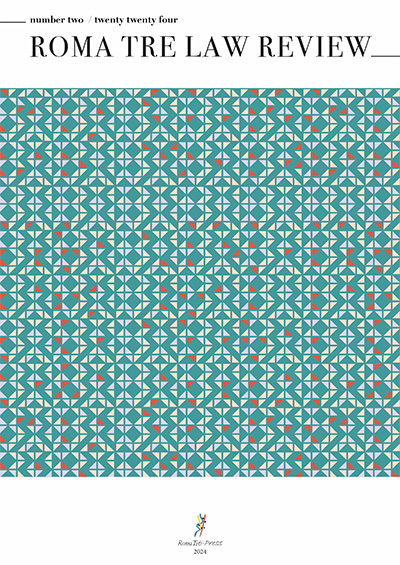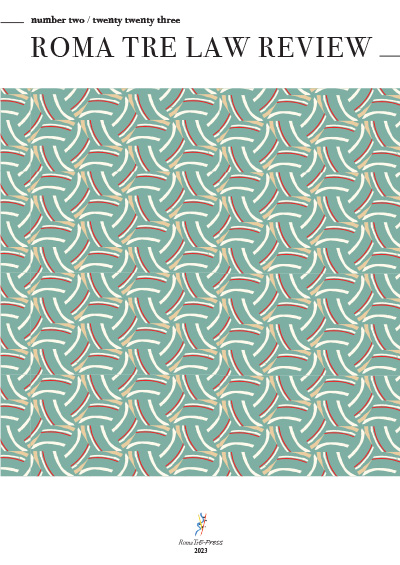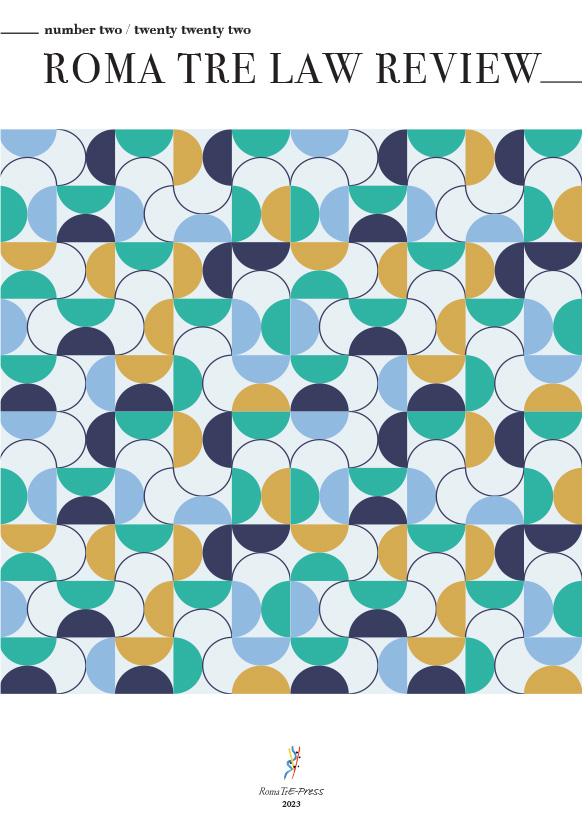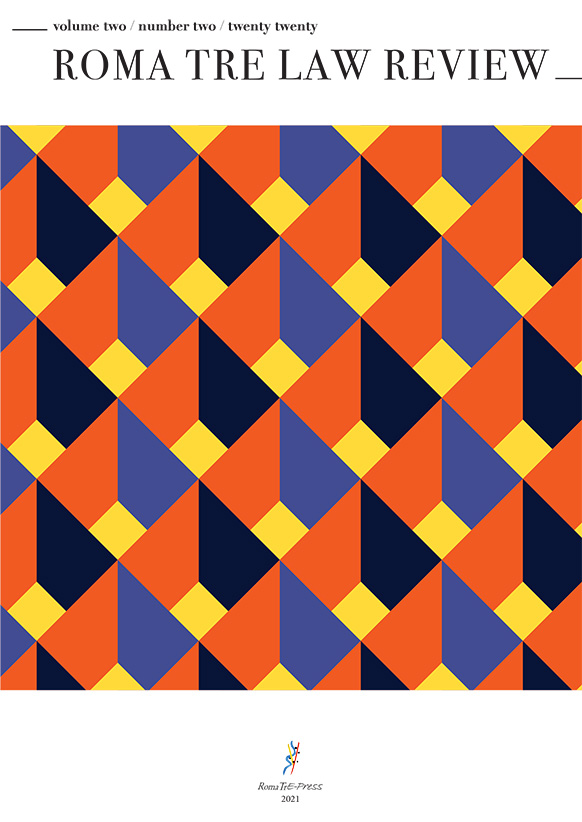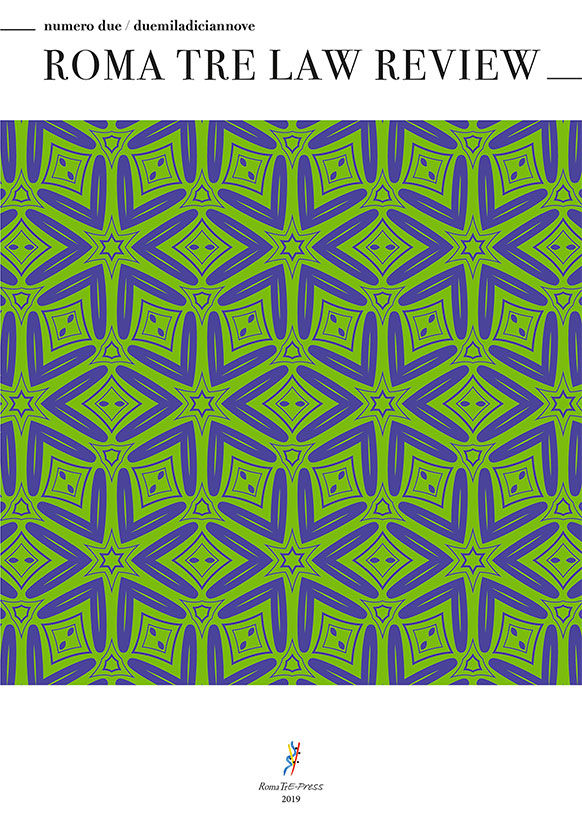Abstract
The Roma Tre Law Review (R3LR) is an open-source peer-reviewed e-journal which aims to offer a digital forum for scholarly debate on issues of comparative law, international law, law and economics, law and society, criminal law, legal history, and teaching methods in law



